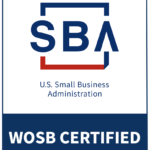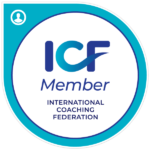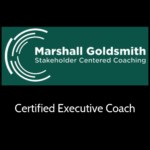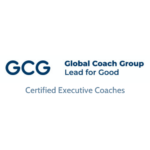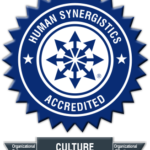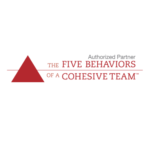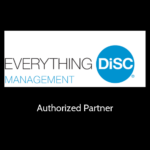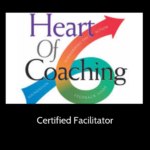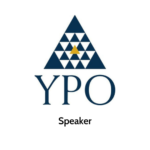Effective Talent Management Strategy for Finding and Keeping Top Entrepreneurial Talent
Written by: Lori Harris, Managing Partner, Harris Whitesell Consulting
Quote: “The best way to create the future is to create it.” – Peter Drucker
There are various challenges that entrepreneurs experience in finding and keeping top entrepreneurial talent. The aligned entrepreneurial talent will often exhibit and share a diverse range of characteristics such as visionary, self-assured, responsive, charming, fast-paced, resourceful, driven, creative, bold, outspoken, influential, action and results-oriented, resilient, enthusiastic, innovative, collaborative, and are risk takers who are comfortable with being uncomfortable. Attracting the right candidate includes knowing what skill sets and behaviors are needed for success in the role, using the right selection process with supporting interview questions to assure fit, and knowing where to find them.
Hiring and retaining top talent is cornerstone to success and plays a key role in an organization’s employee experience, maintaining a constructive and ideal culture, and greatly impacts personal and team fulfillment, productivity, and sustains competitive advantage. All this to say, it is critical and comprehensively strategic because as good as employees are, the cost of losing them is higher, their tenure is priceless, and when they go so does morale, skills, knowledge, and productivity. To put it bluntly, the chain reaction of attrition is painful.
Challenges for entrepreneurs vary and if analyzed, result in key causal factors that reflect a dysfunctional workplace culture, poor leadership, disengagement, dissatisfaction, and failure to execute strategy and achieve collective business results. Here are a few causal factors to refelct on:
- Lack of organization reputation, trust, and credibility;
- Lack of talent alignment to company’s philosophy (Mission, Vision, and Values);
- Lack of competent, skilled, and experienced leadership;
- Lack of job design (roles, responsibility, and functionality);
- Lack of leadership, systems and processes to support top talent through recruiting, onboarding, training, and development;
- Lack of a talent development program; and
- Lack of funding and being able to offer competitive compensation.
Let’s look at some of the recent and shocking talent statistics, as the data is revealing:
- Employee retention is a top priority for 87% of Human Resources managers.
- Roughly a third of employees resign, voluntarily, within the first six months.
- 35% of employees are so unhappy with their jobs that they are job hunting around-the-clock.
- 40% of employees leave their jobs because of the poor performance of their boss, superiors, and executives.
- Only 50% of employees claim confidence in their company’s leadership.
- 46% of high performing employees are using apps to search for a better job.
- A quarter of employees who feel less or de-valued are looking for a new job.
- Over 70% of employees are compelled to leave for the sake of career advancement.
- Almost half of the employees would take another job for a 20% pay raise.
- 96% of employees believe compassion and empathy are important to retain them, and only 50% see their boss as being empathetic or compassionate.
- Clear onboarding processes improve retention rates by 23%, however, 76% of Human Resources leaders render their onboarding process as insufficiently utilized.
- Inadequate employee investment in training and development accounts for 40% of resignations.
- 75% of employees in the United States have no intention of staying at their job for more than five years.
- Currently corporate well-being programs drive 89% of employee referrals, however, employee referral recommendations are set to drop over 17%.
(Source: Gallup, Small Business Trends, Forbes, Quantum Workplace)
It seems the odds are against finding and keeping an employee. However, success can be achieved if the practice of designing, building, nurturing, and maintaining a functional and effective talent management strategy is prioritized and executed with effectiveness. For success to be realized, it requires people’s intention, commitment, and thoughtful planning from the beginning and throughout the lifecycle of every employee recruited and employed by the organization.
So, what is the opposite of the statistical truth regarding attaining and retaining top entrepreneurial talent? Can entrepreneurial businesses experience effectiveness in attracting and retaining top entrepreneurs? Are entrepreneurial businesses able to afford top talent? Do great entrepreneurial leaders really exist? How hard can it be to stop the hemorrhaging of top talent? If so, what would it take?
The opposite of the statistical truth is effectiveness can be achieved in attaining and retaining entrepreneurial top talent. The answer is “yes/and.” It is simply complex. Let’s briefly run through highlights of talent management priorities that support the process.
First and foremost, being effective and realizing results requires a unified strategic commitment, responsibility, and a focused approach from the company’s investors, board members, the CEO, and leadership team. This plan and leadership approach then ripples out to the organization, which includes: the management team members, specialists, employees, and consultants. And with the specific goal that all stakeholders are aligned with the company’s organizational effectiveness strategy. Most importantly its philosophy, culture, and strategy. They all must be willing and capable to optimize their full potential working collectively to communication effectively, achieve results, and sustain the company’s competitive advantage and viability. At the cornerstone of success, the leadership team’s intentionality is to ensure excellence in their talent management strategy and other key management strategies.
Another important factor is prioritizing, and consistently and clearly communicating and appreciating the expected behaviors that uphold and fuel employee engagement and experience, as well as collective results and achievement that leads to continuous success. Ensuring the foundation of a constructive culture, one that offers achievement, affiliation, encouragement and learning, growth and opportunity, value, and enjoyment is important to retention, and yet not the only factor that drives excellence in entrepreneurial talent management.
Onboarding begins in the selection process and continues into the new hire’s first year of employment. It is the process of integrating a new hire into the company and measuring the results over time. Key activities include setting up and giving access to employee’s workstation, leadership and team introductions, overview and sign-off on company policies, and review of company’s history, structure, culture, vision, mission, and values. The goal is to establish a launchpad for ongoing success. Onboarding will look different for different types and sizes of companies and is necessary for all. And it is imperative that leadership and management be engaged and involved.
Executives that have the foresight to purposefully invest in and attend to their leadership, teams, and individual contributors’ development and well-being, offers compelling evidence and deep reason for enhanced loyalty that turns profit and sources the construct for people to feel valued, enjoy and have a sense of pride in their work, and make a positive and lasting difference.
These are a few areas that are significant factors in entrepreneurial success. To become great requires a focus on incorporating and sustaining the full range of talent management strategies that complement people’s talents, skills, and knowledge, and integrates excellence throughout. When done well and customized to the company’s unique value proposition, the company and its leaders are positioned to inspire and lead their employees with effectiveness, teams are set up to collaborate and achieve, and individual contributors enjoy the process of doing work they love and realizing high levels of performance. The comprehensive and collective experience and realization of attaining and retaining top entrepreneurial talent leads to business success and maximizing entrepreneurial excellence!
~~~~~~~~~~~~~~~~~~~~~~~~~~~~~~~~~~~~~~~~~~~~~~~~~~~~~~~~~~~~~~~~~~~~~~~~~~~~
About the Author - Lori Harris is Co-Founder/Co-Owner and Managing Partner of Harris Whitesell Consulting. She is an experienced Talent Management Executive providing world-class service in Organizational & Culture Effectiveness| Talent Optimization| Organizational, Executive, Leadership & Team Development & Coaching | People Data Expert | Author, Speaker, and Thought Leader.
Harris Whitesell Consulting, LLC., is a human resources and talent management consulting firm headquartered in Wilmington, North Carolina. Our mission is to create valued partnerships based on trust, excellence, and impact – from assessment to action. We offer assessment, coaching, development, culture, and engagement, change and transition, talent optimization, and customer strategy solutions. Our team of certified and highly qualified experts maximize organizational and leadership effectiveness and business success by working with people and businesses to accelerate value, optimize growth and opportunities for their leaders, teams, and organizational success! We maximize excellence!
Learn more about our services – visit our website, email us at info@harriswhitesellconsulting.com, call us at +1 (910) 409-0202, and…connect, follow, and reach out to us on LinkedIn.


